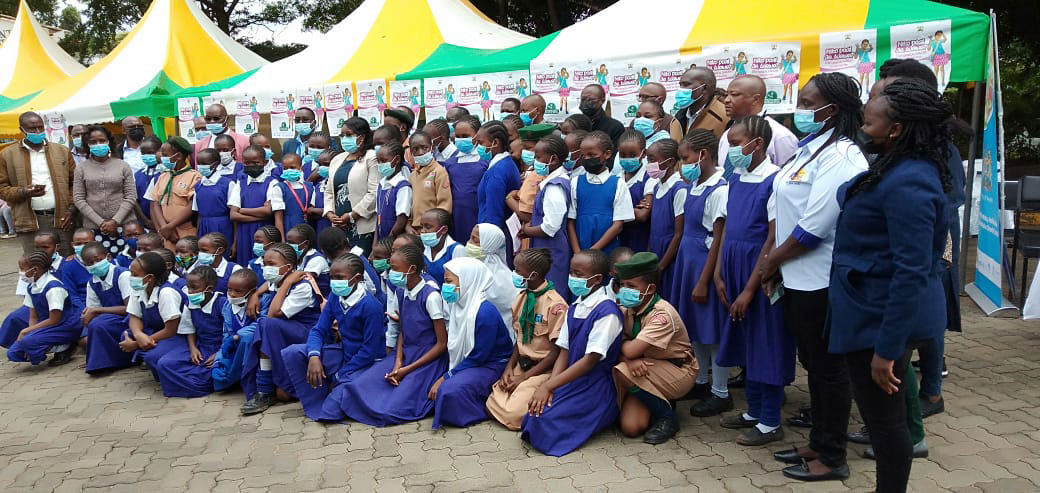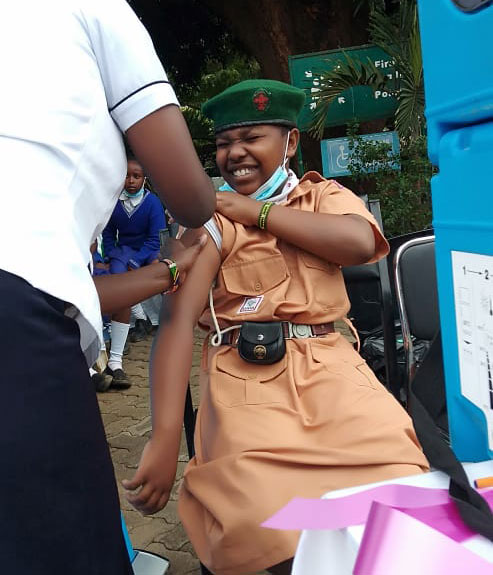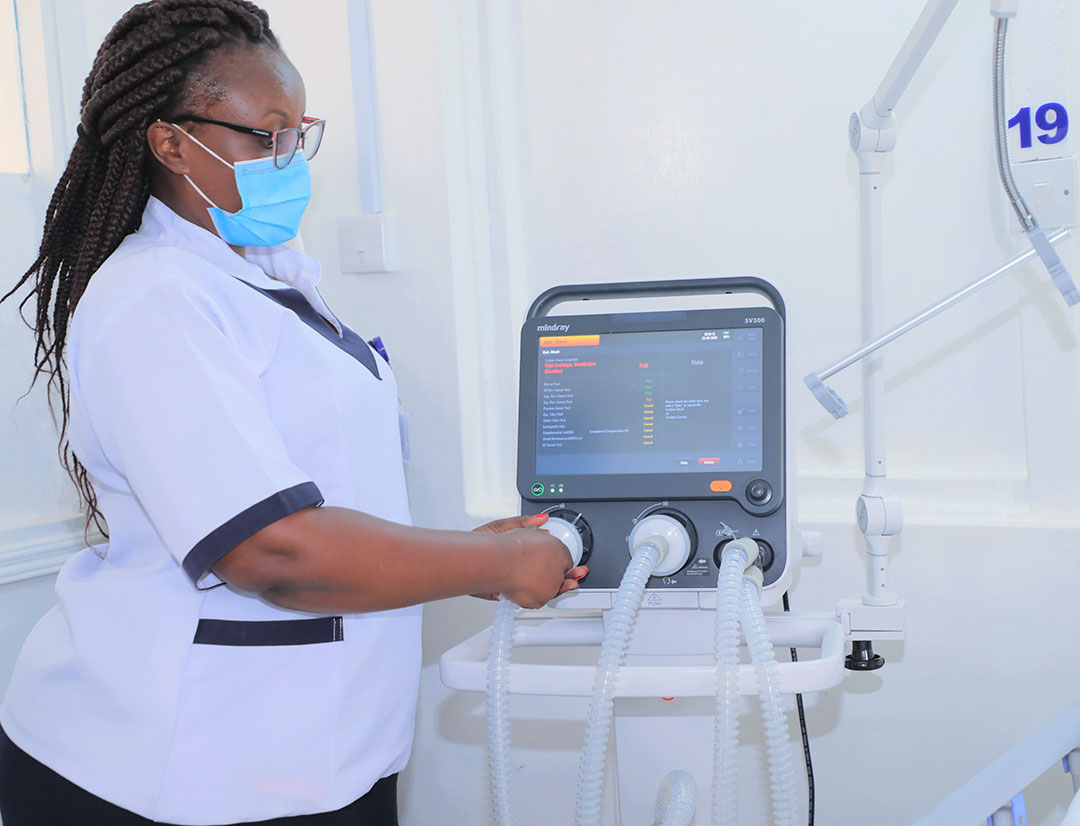Kenya’s HPV vaccine strategies re-activated for COVID-19
Strategies to ensure effective HPV vaccinations in Kenya have been modified to boost rollout of the COVID-19 vaccine.
- 11 March 2022
- 4 min read
- by Abjata Khalif

It’s early morning in the drought-stricken Kitui County of Kenya and primary school children prepare to trek 45 minutes through rugged dry terrain to their school.
Ngomeni primary school is participating in a school-based pilot programme to administer human papillomavirus (HPV) vaccine to female pupils. In Kenya nine women die every day from cervical cancer, with women in their twenties especially vulnerable.
“Before COVID-19, our network of adolescent health educators offered youth information and where to get HPV vaccine. Now, additionally, we are offering the same services to youth in Kiambu by linking them to youth friendly centres for COVID-19 vaccine administration.”
Rose Mwikali, a former student at Ngomeni primary school, remembers how she faced resistance and objection from her parents to taking the HPV vaccine.
‘”A lot of misinformation was flying around about the HPV vaccine. Our parents were told the vaccine was laced with a family planning component to sterilise girls. But I took the vaccine then because of the information and education on the vaccine I had received at Ngomeni school,” states Mwikali.

During the pilot programme, Kitui Health encouraged active community involvement in strategies to promote the uptake of the vaccine and tackle misinformation about HPV.
“The active community involvement assisted the Kitui County health authority in modifying negative beliefs about HPV and addressing concerns of parents and children in order to ensure effective HPV vaccination uptake,” says Wilfred Kirimi, the head of Kitui Newborn Unit.
He adds, “The local health authority worked in collaboration with the school administration and parents’ association in addressing perceived mistrust toward the then new HPV vaccine. The collaboration contributed to high acceptance of the vaccine.”

The same collaborative network established for the HPV pilot scheme in Kitui county was re-activated in 2020 to educate the community on COVID-19 and to promote COVID-19 vaccine uptake.
“By mid-2020, a lot of misinformation regarding COVID-19 reached both the rural and urban populations and we realised that it was similar to that peddled by anti-HPV vaccine propagandists. The scenario forced us to re-activate the joint collaboration network in Kitui to address the new misinformation on COVID-19 and vaccine,” explains Kirimi.
Have you read?
The successful HPV vaccine pilot programme implemented in Kitui county led to national scale up. Kenya became the 16th African country to introduce the HPV vaccine into its routine national immunisation schedule.
The national scale-up programme, which is supported by Gavi, ensures that the HPV vaccine and other related routine vaccines are available countrywide through public, private, faith-based and non-governmental facilities.
The Gavi-supported national rollout used a facility-based strategy where vaccination is provided by health care workers at local facilities in addition to other services like social mobilisation, advocacy and engaging various stakeholders like communities and schools.

Kiambu County in Central province was amongst the first counties to participate in the national HPV vaccine introduction. Kiambu County, which borders the Kenyan capital, Nairobi, has a population of 2.4 million people.
“I have 10 years’ work experience as a health care worker here in the Ndenderu health facility and I received training in 2019 on HPV vaccine administration and community education. When COVID-19 came in 2020 and affected the HPV vaccine administration, I joined a different health work unit to offer the community the COVID-19 vaccine and demystify it,” says John Wambugu, a health care worker in Kiambu County.
Another component of the national roll-out involves adolescent stakeholders being trained on HPV vaccine community education, mobilisation and advocacy on HPV promotion. With the onset of COVID-19, these same youth have received first-hand information, knowledge and advice on the COVID-19 vaccine and available youth friendly centres in the county that offer the vaccine.
“Before COVID-19, our network of adolescent health educators offered youth information and where to get HPV vaccine. Now, additionally, we are offering the same services to youth in Kiambu by linking them to youth friendly centres for COVID-19 vaccine administration,” Selina Njagi, a member of Kiambaa Adolescent Health Educators states.
As of 1 March 2022, Kiambu county had administered 543,805 COVID-19 jabs with 40% of those being received by the youth of the county.
More from Abjata Khalif
Recommended for you








